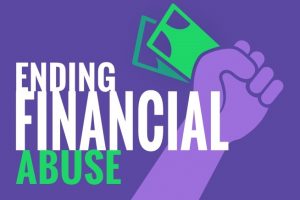 There are “strong indications” that somewhere between 50 per cent to 90 per cent of family violence cases involve economic abuse, and as such, it is imperative that lawyers know how to support clients through such traumatic incidences, argues one boutique practitioner.
There are “strong indications” that somewhere between 50 per cent to 90 per cent of family violence cases involve economic abuse, and as such, it is imperative that lawyers know how to support clients through such traumatic incidences, argues one boutique practitioner.
In conversation with Lawyers Weekly, Faigenbaum Family Lawyers principal Talya Faigenbaum said, as with other forms of family violence, financial abuse occurs “throughout the social spectrum and does not differentiate between class, culture, background or postcode”.
What is financial abuse
“The effects of financial abuse also cut across sectors: from the telecommunications industry, banking and finance, utilities and essential service providers to housing and tenancy, motor vehicles and visa and migration matters. Indicators of financial abuse can therefore appear in legal claims across a range of courts and tribunals, from the family court to small claims tribunals such as VCAT, local or magistrates courts and immigration tribunals,” she mused.
It is therefore crucial, she surmised, that lawyers in all practice areas are able to identify the signs of financial abuse and take appropriate steps toward assisting their clients.
Ms Faigenbaum explained that financial abuse is an “unlawful pattern of behaviour deliberately designed to undermine a victim’s financial security and autonomy”.
“Commonly, perpetrators of economic abuse will take control of all household finances, restrict a victim’s access to bank accounts, incur debt in the victim’s name through coercion or deception or prevent a victim from gaining independent employment. Like other forms of family violence, economic abuse is highly gendered and can have significant long-term impacts on the lives of women and children,” she said.
“There are some unique aspects to financial abuse, however, which make it distinctively destructive. Primarily this is because the abusive behaviour can continue even after a couple have separated. As a family lawyer I have seen countless situations where one partner uses mechanisms of financial control to inflict ongoing harm, long after a relationship has ended and when other forms of abuse are no longer at their disposal. In this context, victims can remain tied to their abusers for years as they attempt to disentangle complex financial relationships.”
Protecting against financial abuse
There are simple steps lawyers can take to assist a client that may be a victim of financial abuse, she outlined.
“There are valuable resources available online, and for lawyers who do not ordinarily practice in the areas of family law or family violence, it may be helpful to cultivate a connection with frontline family violence specialists. Reaching out to a local community legal centre is a good place to start,” she suggested.
“Financial counsellors also play a critical role in assisting victims of economic abuse as they have more direct access to hardship liaison officers at banks, utilities providers, telecommunications companies and Centrelink.
“Lawyers can actively assist in these referral pathways or simply provide their clients with the information they need to access these services.”
On the question of legislative protections, Ms Faigenbaum said that Australia has “some of the most expansive family violence provisions in the world”, with most Australian states and territories recognising financial abuse as a legislated form of family violence.
“Yet despite this legal recognition, awareness of financial abuse and the remedial responses available are still limited,” she said.
Identifying issues as lawyers
Further, the lack of awareness and understanding of economic abuse among victims, the community, police and even within the legal profession, “all contribute to an ongoing exposure to harm”, she continued.
“As lawyers we are often given intimate access to our client’s financial circumstances, whether we are directly assisting them in resolving a family breakdown, structuring their family trusts, preparing wills or assisting with estate planning or property acquisition and disposal.
“Even as employers, we may encounter situations where a staff member is experiencing one or more variations of financial abuse.”
“Being able to identify and understand the impact of economic abuse and make appropriate referrals is not only an important part of our role as legal practitioners and business owners but will help drive a increased awareness of this often invisible form of family violence.”
Ms Faigenbaum is looking to take meaningful action herself, however, adding she is currently leading “an exciting project” at West Heidelberg Community Legal Service to develop a smartphone app designed to assist victim-survivors and their support workers identify financially abusive behaviour and take steps toward reclaiming their financial security.
“We are still in the early stages of iteration and user testing but it’s proving to be a very valuable tool to assist victims and survivors struggling to recover from the effects of financial abuse. We’re excited about taking it forward,” she said.